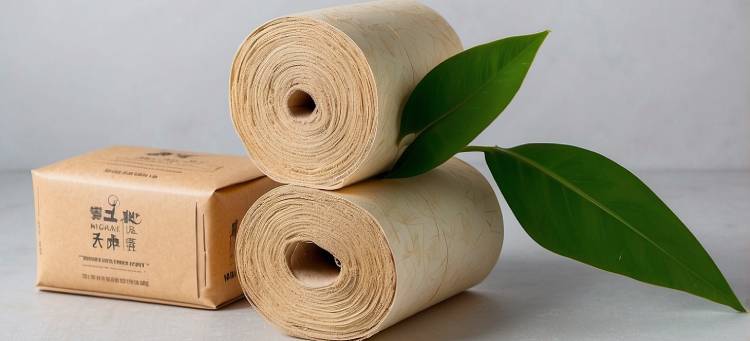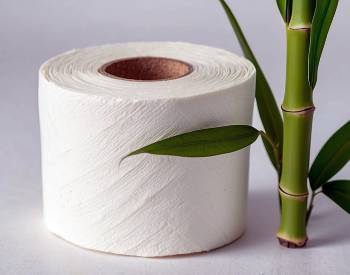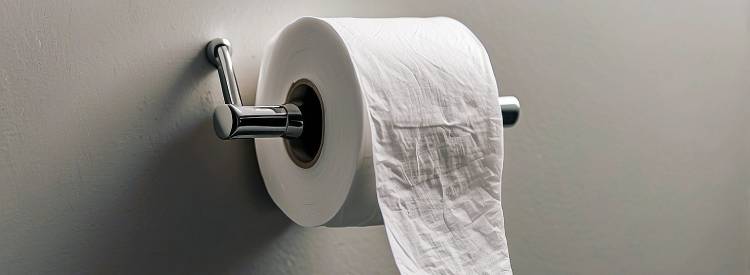Hey there! Have you ever found yourself standing in the toilet paper aisle, overwhelmed by the variety of options?
Among the choices, bamboo toilet paper has probably caught your eye. It’s marketed as eco-friendly and sustainable, but is it really all that it’s cracked up to be?
In this article, we’re going to explore the downsides of bamboo toilet paper. By the end, you’ll have a clear understanding of whether it’s the right choice for you and your household.
A Quick Overview of Bamboo Toilet Paper

Before we get into the drawbacks, let’s quickly talk about what bamboo toilet paper is. Made from the fast-growing bamboo plant, this type of toilet paper is praised for being environmentally friendly.
Bamboo grows quickly and doesn’t require replanting, making it a renewable resource. Plus, it’s usually free from harsh chemicals and additives.
The Environmental Footprint
One of the main selling points of bamboo toilet paper is its eco-friendliness. However, it’s important to take a closer look at its environmental impact.
- Transportation Emissions
Most bamboo toilet paper is produced in China and then shipped around the world. The carbon footprint associated with transporting it can be significant.
Those long shipping routes contribute to greenhouse gas emissions, which somewhat offsets the environmental benefits of using bamboo.
- Agricultural Practices
While bamboo is a sustainable crop, not all farming practices are created equal. In some cases, bamboo farming can lead to deforestation and habitat loss, particularly if natural forests are cleared to make way for bamboo plantations. This can negatively impact local wildlife and biodiversity.
Cost Considerations
Let’s talk money. Bamboo toilet paper tends to be more expensive than its traditional counterparts. If you’re on a tight budget, this can be a major downside.
Sure, you might be willing to pay a bit more for an eco-friendly product, but it’s worth considering whether the higher cost fits into your monthly budget.
- Price Vs. Value
You might be wondering if the higher price tag is worth it. Bamboo toilet paper is often marketed as being stronger and more durable than regular toilet paper, which could mean you use less of it.
However, the difference might not be as significant as advertised, and you might not see enough of a reduction in usage to justify the cost.
Comfort And Quality
Now, let’s get real about comfort. After all, you want your toilet paper to be gentle on your skin, right? Bamboo toilet paper has a mixed reputation when it comes to comfort and quality.
- Texture and Softness

Bamboo toilet paper can sometimes feel rougher compared to the plush, soft feel of high-quality conventional toilet paper.
If you have sensitive skin, this can be a major downside.
The manufacturing process and the quality of the bamboo pulp used can affect the texture, and not all brands are created equal.
- Strength and Durability
While bamboo toilet paper is often praised for its strength, this can be a double-edged sword. Stronger doesn’t always mean better. If the paper is too tough, it might not break down easily in your plumbing system, leading to potential clogs and plumbing issues.
Availability And Convenience
When it comes to convenience, bamboo toilet paper might not always be the best choice.
- Limited Availability
Not all stores carry bamboo toilet paper, which means you might have to go out of your way to find it. Ordering online is an option, but this adds to the carbon footprint due to shipping.
Plus, if you run out unexpectedly, it might not be as easy to replenish your supply as it would be with regular toilet paper.
- Packaging
Eco-friendly products often come with eco-friendly packaging, which is great! However, bamboo toilet paper packaging can sometimes be less user-friendly.
Some brands use minimal or biodegradable packaging, which might not protect the product as well during transport, leading to damaged rolls.
Potential Health Concerns
While bamboo toilet paper is generally free from harsh chemicals, there are still some potential health concerns to consider.
- Allergic Reactions
Some people might be allergic to bamboo fibers or the process chemicals used in manufacturing. If you have sensitive skin or a history of allergies, it’s worth testing a small amount before fully committing to a new brand.
- Chemical Residues
Although bamboo toilet paper is often marketed as chemical-free, the truth is that the manufacturing process can sometimes involve chemicals like formaldehyde or bleach. Always check the labels and look for products that explicitly state they are free from these chemicals.
The Social and Economic Impact
Beyond personal and environmental concerns, it’s important to consider the broader social and economic impacts of choosing bamboo toilet paper.
- Labor Practices
The production of bamboo toilet paper often takes place in countries with varying labor standards. There are concerns about the working conditions and fair wages for the workers involved in the cultivation and processing of bamboo.
As a consumer, it’s essential to support brands that adhere to fair labor practices and provide safe working environments for their employees.
- Economic Implications
The higher cost of bamboo toilet paper can also have economic implications for families and individuals. While some may be able to afford the premium price, others might find it a strain on their budget.
This creates a disparity where only those with higher disposable incomes can afford to make eco-friendly choices, leaving others behind.
Making An Informed Decision

By now, you might be weighing the pros and cons of bamboo toilet paper. It’s important to make an informed decision that aligns with your values, budget, and lifestyle.
- Alternatives To Consider
If bamboo toilet paper doesn’t seem like the right fit for you, there are alternatives that you might find more suitable. Recycled toilet paper, for instance, offers an eco-friendly option without some of the downsides associated with bamboo.
Additionally, looking for FSC-certified products can ensure that the wood used in your toilet paper comes from responsibly managed forests.
- Personal Preferences
At the end of the day, your choice of toilet paper is a personal one. Consider what matters most to you – whether it’s environmental impact, cost, comfort, or availability. Sometimes, it’s about finding a balance rather than seeking perfection.
Final Thoughts
Choosing the right toilet paper might seem like a small decision, but it has larger implications for your wallet, comfort, and the environment. Bamboo toilet paper offers a more sustainable option compared to conventional products, but it comes with its own set of downsides.
From higher costs and potential comfort issues to environmental and social concerns, it’s important to weigh these factors before making a switch.
Remember, there’s no one-size-fits-all answer here. What’s most important is that you make a choice that fits your needs and aligns with your values. Whether you go for bamboo, recycled, or another eco-friendly option, being informed and mindful about your choices is the best way to make a positive impact.
So next time you’re in the toilet paper aisle, you’ll have all the information you need to make the best decision for you and the planet.
